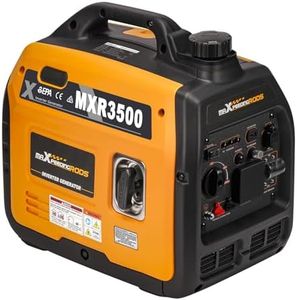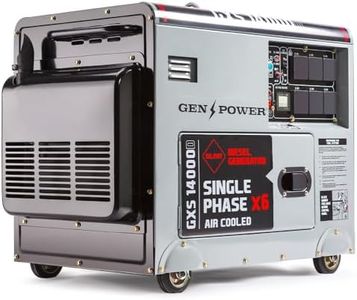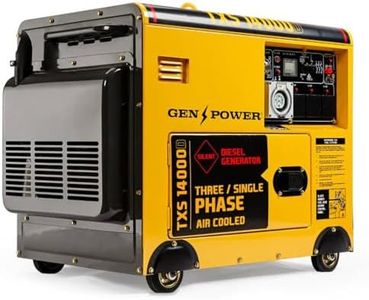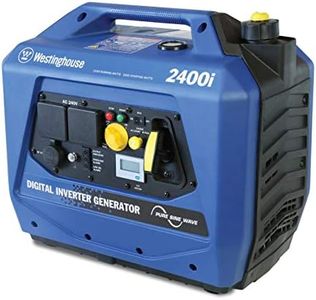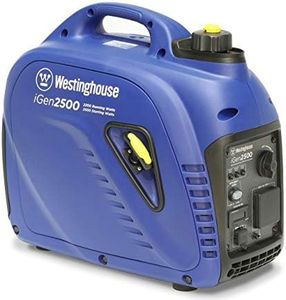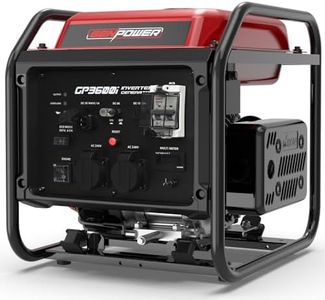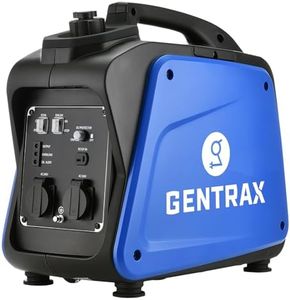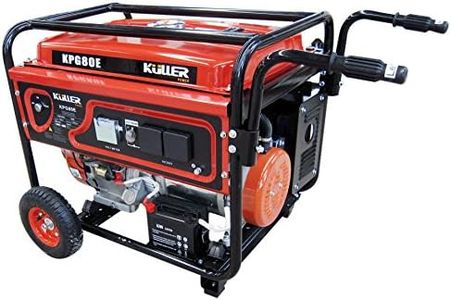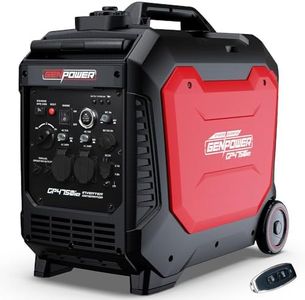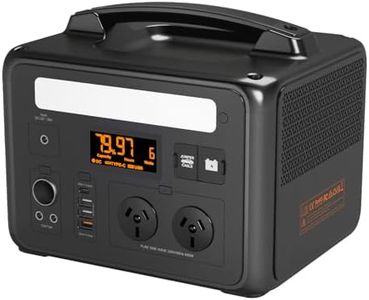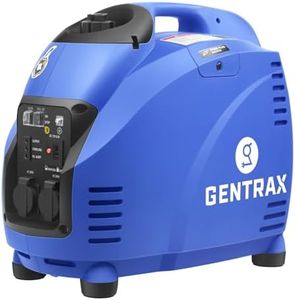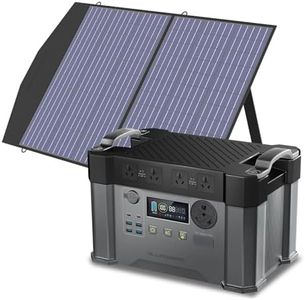We Use CookiesWe use cookies to enhance the security, performance,
functionality and for analytical and promotional activities. By continuing to browse this site you
are agreeing to our privacy policy
10 Best Home Generators
From leading brands and best sellers available on the web.By clicking on a link to a third party's website, log data is shared with that third party.
Buying Guide for the Best Home Generators
Picking the right home generator is all about making sure you have a reliable source of power when you need it most, like during blackouts or storms. The ideal generator for your home depends on how much electricity you need, how much space you have, and how you plan to use it (just for essentials, or to power your whole house). Understanding the key features and specifications will help you narrow down your options so you get a generator that’s dependable, safe, and a good fit for your lifestyle.Power Output (Wattage)Power output, measured in watts, tells you how many and what kinds of devices or appliances your generator can run at one time. There are two main numbers: running watts (the amount of power it makes consistently) and starting watts (extra power needed to start up some appliances like refrigerators). Small generators (up to 2,000 watts) are best for the basics like lights and chargers, medium ones (2,000–6,000 watts) handle more like fridges and sump pumps, and larger generators (over 6,000 watts) can power almost everything in a medium-sized home. To choose, make a list of the appliances and systems you want to power during an outage and add up their wattages—this gives you a clear target for the right size.
Fuel TypeGenerators run on different fuels—commonly gasoline, propane, or natural gas. Gasoline is easy to get but isn’t ideal for long storage, while propane burns cleaner and stores well, and natural gas is convenient if your home already has it. The choice affects how easy the generator is to refuel and how long it will run during an emergency. If you want convenience and unlimited runtime, natural gas is best but requires a home connection. Propane is a good middle ground for storage and cleaner operation, and gasoline is usually the most widely available but suited to shorter outages.
Type: Portable vs. StandbyGenerators come in portable and standby options. Portable generators can be moved around and are usually set up as needed, while standby generators are larger, permanently installed units that automatically start when the power goes out. Portable types suit people who just want temporary backup for a few essentials and have no need for whole-house coverage, while standby generators are great if you want seamless, automatic power for your entire home or critical systems.
Noise LevelGenerators can vary a lot in how loud they are, measured in decibels (dB). Softer units make around 50–65 dB (like a normal conversation), while louder ones may reach 70–80 dB (like a vacuum). If your generator will be near the house or you’re sensitive to noise, look for quieter options. For camping, neighborhoods, or city homes, lower noise is better for comfort and to avoid disturbing others.
RuntimeRuntime refers to how long a generator can operate on a full tank or supply of fuel, often listed at a specific load (like 50% of the maximum power). Longer runtime means fewer interruptions for refueling and less hassle during longer outages. If you want peace of mind and the least amount of supervision, choose a generator with a long runtime that matches your usual needs—especially if you plan to run it overnight or through extended blackouts.
Start MechanismGenerators can have manual recoil (pull-start), electric push-button start, or even automatic start features. Manual start is basic and reliable, while electric start makes things much easier, especially for those who might struggle with a pull cord. Standby generators usually offer automatic starting, turning on immediately if the power goes out. If ease of use is a priority or you want a generator that works without anyone home, prioritize electric or automatic starts.
Transfer Switch CompatibilityA transfer switch safely connects a generator to your house wiring and prevents dangerous back-feeding onto utility lines. Not all generators can be connected directly—some work with manual switches, some with automatic ones. It’s important to make sure your generator matches the transfer switch type you have or plan to install. For whole-home or critical circuit coverage, confirm compatibility to ensure safe and easy use.
